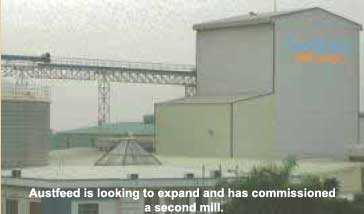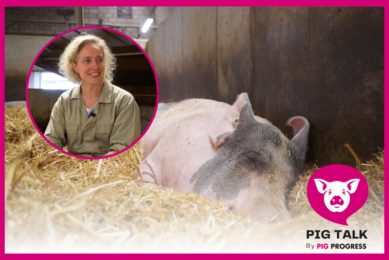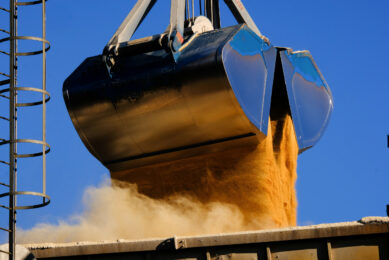Austfeed cannot keep up with demand

Vietnam has a thriving livestock industry and with meat consumption forecast to rise in line with an increase in living standards, it’s hardly surprising that Vietnam also has a growing animal feed industry. Austfeed is one of the joint ventures that wants to grow, and needs to grow, to be able to supply its customers.
By Stuart Lumb
Austfeed Vietnam Co Ltd is an Australian/Vietnamese joint venture company as the name implies, set up in 2004 and now enjoying ISO 9001 status. The mill is located at Hung Yen, an hour’s drive from Hanoi in northern Vietnam. Many of Austfeed’s customers have as few as 20 pigs per farm, with Austfeed providing technical and veterinary support. One technician services 100 farms, travelling around by means of a motorbike. The current capacity of the company is 4,500 tonnes per month, which is not sufficient to meet the demand of the farmers. With ambitions to become one of the leading companies that manufactures and distributes animal feeds in Vietnam, Austfeed has been investing in infrastructure development such as offices and R&D centres and has provided and introduced modern equipment in Vietnam.
In addition, in order to further improve productivity and diversify the types of products, Austfeed will commission a new production line with a capacity of 10,000 tonnes per month, thus increasing total plant capacity to around 15,000 tonnes per month.
When the company’s new mill, located further south in Binh Dinh, becomes active Austfeed’s total output will be 300,000 tonnes per annum. The Hung Yen mill produces feeds for poultry, pigs, cattle and fish, with 90% being in pelleted form. Eighty percent of the raw materials are imported, such as maize coming from India, Pakistan and the USA. Wheat comes from India also, with soya being shipped in from the USA, China and India. Other raw materials used include fishmeal, MBM, feather meal, blood meal, rice bran, bone meal and limestone. Austfeed has three big trucks to ship these ingredients in from the docks and elsewhere.
Bags, bags, bags
All the ingredients are transported in bags and Austfeed has a staff of 27 employees as much of the handling is done by hand. The bagged raw materials are stored in several huge warehouses, with a capacity of up to 20,000 tonnes. The milling equipment is Swiss, made by Buhler, with the mill manager coming from Thailand but fluent in Vietnamese.
The pellet mill produces three different sizes of pellets – 2mm, 3.5mm and 4mm. Output stands at 25 tonnes/hour (4mm pellets) dropping to 18 t/h for the 2mm size.
Austfeed have invested US$ 50,000 in formulation software, sourced from the US-based Brill company which can produce 200 different formulations. As a result the Austfeed directors spend several weeks each year in the USA on courses, in order to keep up to date with new nutritional trends and developments.
Pig feeds
With regard to pig feeds, post weaning diets often contain 2,500 ppm of zinc oxide, fed for three weeks to prevent scouring whilst finisher feeds include 200 ppm of copper sulphate, added as a growth promoter.
Austfeed also produces 40 tonnes/day of its own fishmeal, for inclusion in its feeds and for selling to other compounders and large home mixers. When it comes to feed sales, it’s a case of cash up front. A big truck rolls up to the mill and the driver passes over a wad of notes – only then will he get loaded up.
Bui Van Liuh is an Austfeed customer and has 180 growing/finishing pigs, six times the average number of pigs that most of his neighbours have. He feeds his pigs three times a day and they are fed a wet mash, all done by hand. Pigs are housed in solid floored sheds, with a central feed passage. The sheds are naturally ventilated. He also has 500 free range broilers. In addition he acts as a feed distributor, bringing his feed into the farm on his small motorbike, a few bags at a time. Finished pigs go out the same way – well secured, by motorbike.











